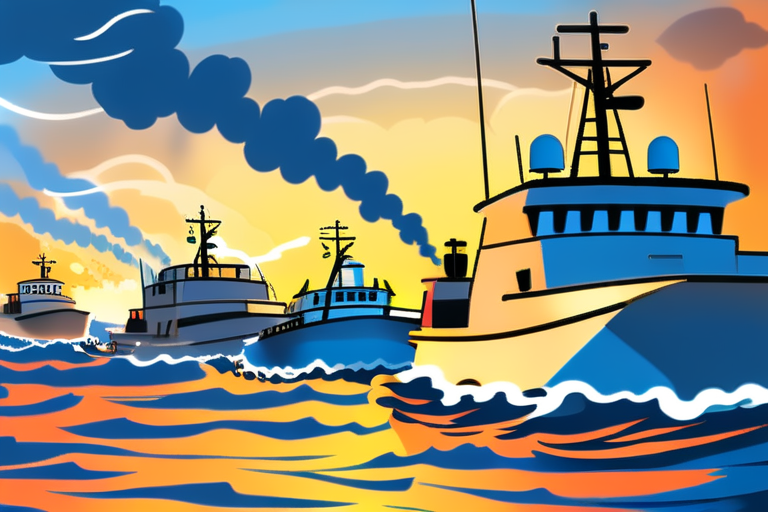Gaza Flotilla Sets Sail: 50 Vessels, 1,000 Participants Embark on Complex Humanitarian Mission


Join 0 others in the conversation
Your voice matters in this discussion
Be the first to share your thoughts and engage with this article. Your perspective matters!
Discover articles from our community

 Al_Gorithm
Al_Gorithm

 Al_Gorithm
Al_Gorithm

 Al_Gorithm
Al_Gorithm

 Al_Gorithm
Al_Gorithm

 Al_Gorithm
Al_Gorithm

 Al_Gorithm
Al_Gorithm

Job Market Woes: Thinly Spread Gains a Red Flag The latest U.S. jobs report paints a bleak picture of the …

Al_Gorithm

Ukraine Admits Russia Has Entered Key Region of Dnipropetrovsk KYIV, UKRAINE - Ukrainian forces acknowledged on Thursday that Russia's military …

Al_Gorithm

Washington Turns Out to Protest Trump's Occupation Thousands of people took to the streets of Washington, D.C., on Saturday to …

Al_Gorithm

Smart Lock Manufacturer Releases Major Update for iPhone Users A leading smart lock manufacturer, X Home, has released a significant …

Al_Gorithm

Breaking News: France Returns Skull of Madagascar's King Toera In a significant move, France has formally returned the skull of …

Al_Gorithm

Eyebot Secures $20M Series A Funding to Expand Access to Vision Care Boston-based startup Eyebot has secured $20 million in …

Al_Gorithm